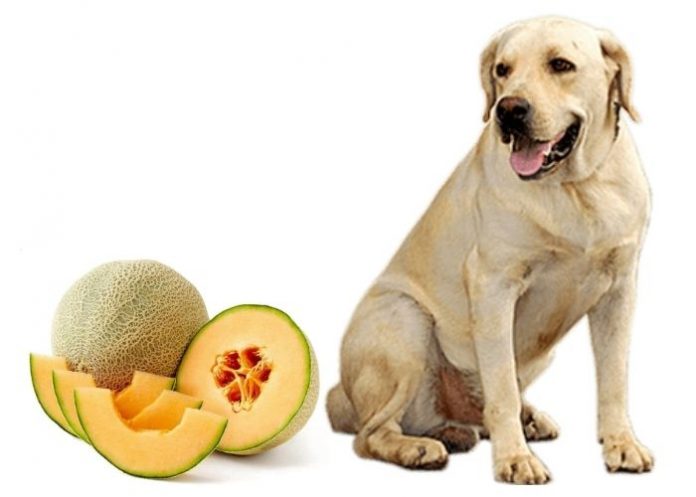Melon is a delicious fruit that perfectly combines taste and nutrition, because it has a high nutritional value for the human health. For this reason, very often, people who live with dogs ask, “Can I give a melon to my dog?”
Benefits of melons for dogs
We can see that melon is rich with vitamin C or ascorbic acid, which is one of the most powerful natural antioxidants, which can fight the effects of free radicals and cell aging. In addition, vitamin C is a key nutrient for the proper development and strengthening of the immune system, helping to prevent various common diseases in dogs.
Therefore, moderate and regular consumption of melons can be very positive for puppies that are in full growth and whose natural defenses are still forming, and which are more susceptible to potentially deadly conditions such as parvovirus and nausea. However, the benefits of melons for older dogs are also very relevant, as they can contribute to the prevention of age symptoms and better absorption of nutrients from their diet, avoiding loss of muscle mass that impairs mobility and physical endurance.
On the other hand, melon is a fruit with a high proportion of water, so it helps keep dogs well hydrated and prevents various disorders caused by insufficient fluid intake, such as urinary tract infections. The water contained in fruits like melon and watermelon also has a diuretic and purifying effect, helping to eliminate toxins and maintain a balanced metabolism.
The combination of the cleansing effect with natural antioxidants, vitamins and carotenoids makes melons and healthy food for the health of the skin and hair of dogs, preventing dehydration and skin problems such as skin allergies.
Finally, it is important to emphasize that melon provides a good fiber content, a component that helps maintain active and stable intestinal transit, avoiding stomach discomfort and constipation in dogs.
Can dogs eat melons?
So you can give a melon to your dog? The answer is YES! As we have seen, there are several properties of melon for dogs at all stages of their development. However, it is very important to take certain precautions when offering this fruit to animals to avoid harmful health effects.
In this regard, it is crucial to understand that dogs need to consume a good dose of protein daily to fully meet their nutritional needs. Although the dog is currently considered a domestic omnivore due to domestication and, therefore, can eat a variety of foods, meat and fish are still the best protein for dogs.
Can dogs eat green or Chinese melon?
Yes, dogs can eat melons in all its versions, because, in general, all types of melons offer the same benefits. What is really important is how to give this fruit to avoid digestive problems.
Amount of melons for dogs
The amount of melon a dog can consume will depend on its size, weight and health. However, it is usually recommended not to consume more than 4 or 5 meals a day. If you decide to mix melons with other fruits, be sure to reduce this amount to prevent your dog from consuming too much sugar at the same time.
A great way to include melons in your dog’s diet is to use this fruit as a positive boost in your education to encourage learning. Every time your dog performs positive behavior, you can offer a piece of melon to reward him and encourage him to keep learning.
In addition to offering melons as a natural reward, you can also give it during hot weather to prevent dehydration. In that sense, it’s common to consider what other refreshing fruit it could take for dogs. For example, many people ask the following questions: “Can dogs eat melons and watermelon?” It is true that these animals can also consume watermelon, because there are many benefits that this fruit offers them.





